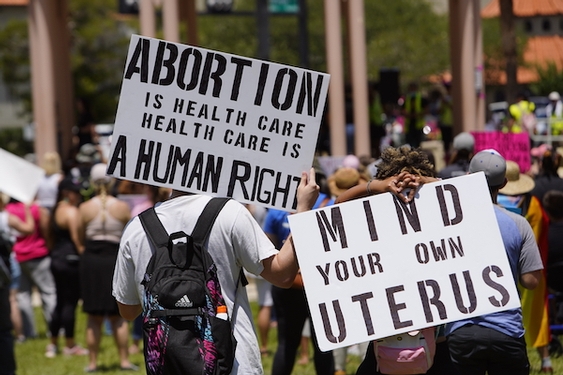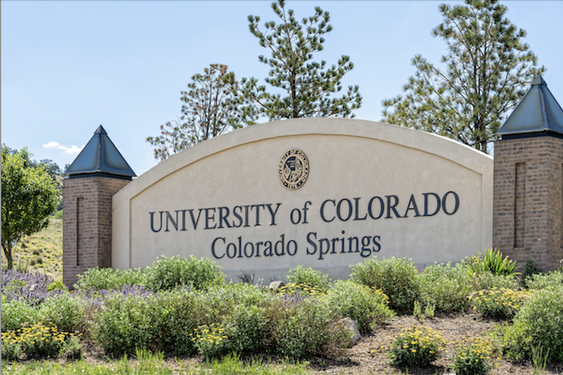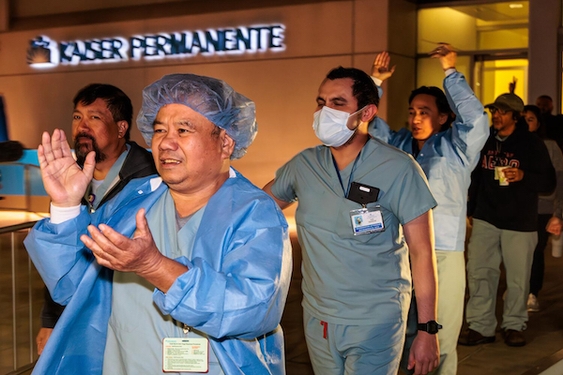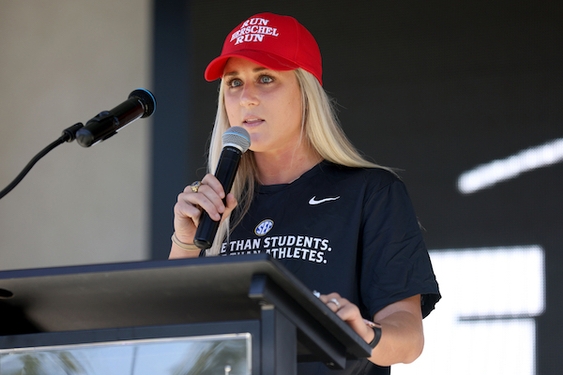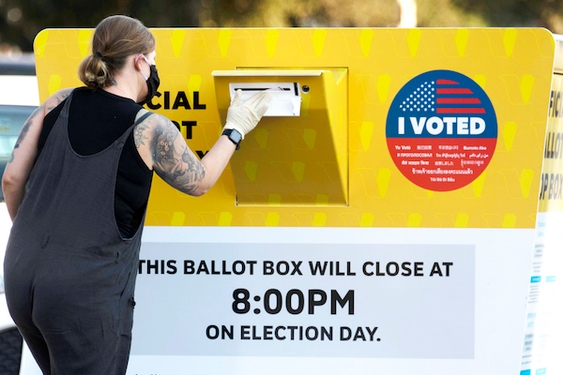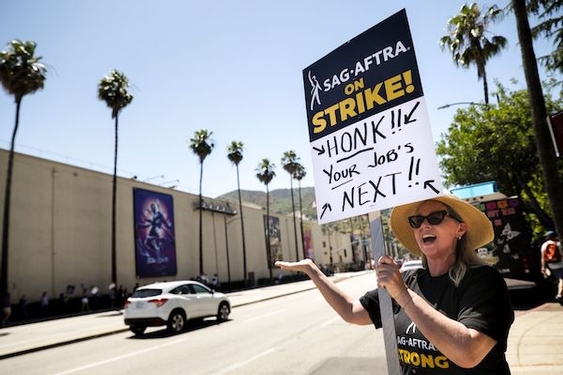Every day, a network of volunteers for the Tampa Bay Abortion Fund — mostly women, diverse in age and background — log on to their computers, power up their phones and get to work.
They operate like professional strategists, connected by messenger, phone and the occasional virtual meeting. Many have never met in person and wouldn’t recognize each other in a crowd, but together, they have helped hundreds across the South access abortions each year by removing financial and logistical barriers to reproductive health care.
Their work just got harder.
In a landmark decision on Friday, the U.S. Supreme Court overturned its precedent of nearly 50 years, protecting the right to an abortion. The decision, written by Justice Samuel Alito, reverses previous opinions by the Court that interpreted abortion to be a right protected within the Constitution and prohibited states from outlawing the procedure. The decision, which turns the power to govern reproductive rights over to the states, is nearly identical to a draft that was leaked in early May.
Although the decision marks a near immediate end or imminent threat to legal abortion in more than a third of U.S. states — and others have laws that explicitly protect a woman’s right to choose — the future of abortion access in Florida is less clear.
Florida has historically been a safe haven for those seeking abortions in the South.
But with anti-abortion advocates emboldened by the Supreme Court, and state lawmakers who have expressed interest in further limiting theability to terminate a pregnancy, reproductive rights are under attack.
Those on the frontlines of abortion access must now split focus between serving the present needs of those choosing to terminate their pregnancy, and planning for a future in which a more sophisticated network of resources is needed to make abortion accessible.
“Abortion is still legal in this country, and we’re more dedicated than ever to getting people the care they want and deserve,” said McKenna Kelley, a volunteer with the fund. “Our priority is our clients. That hasn’t changed.”
Threats in motion
Florida’s Constitution has its own privacy protections that have been interpreted to encompass abortion. They are more explicit than those offered by federal courts. Because of that, a full ban on abortion in Florida would likely require legislative action, a lawsuit and a decision by state Supreme Court justices to reverse 30 years of precedent. It can’t happen overnight.
Still, threats to abortion access are already in motion.
During the last legislative session, Gov. Ron DeSantis signed a bill banning most abortions after 15 weeks. The new law goes into effect July 1.
In April, a Florida judge upheld a law requiring a 24-hour waiting period between a first consult and an abortion, adding an additional barrier. It took that case seven years to wind its way through the courts.
When the Supreme Court decision dropped, Kelley, from the Tampa Bay Abortion Fund, said it was an emotional blow, but the work that the fund was doing didn’t actually change.
Established in 2018 to provide things like financial assistance, child care and transportation for those seeking abortions, the organization has spent the last several months preparing to work around new restrictions.
In anticipation of the 15-week abortion ban, Kelley said volunteers with the organization have been looking beyond Florida to build relationships and enter into agreements with clinics in states like New York where abortion will remain accessible.
Similarly, Kelley said the fund has been building its capacity to transport its clients to and from clinics out of state.
“It’s not just Florida where abortion is being restricted. There are going to be people from all over the country going to a relatively small number of states (for abortions),” Kelley said. “We want to be ready.”
Getting patients to appointments is going to be exponentially more expensive.
That is one of the most frustrating parts of the court’s ruling and the bans that will follow, said Elizabeth Corwin, who has been a volunteer driver with the fund since 2020.
Those with the means to travel for abortion will still be able to access it. They’ll take off work and get on planes and go to clinics in states where abortion is legal, she said.
“We’re only making it difficult for people who don’t have the money, for those who can’t leave town for a couple of days,” Corwin said. “We’re making it difficult for the people who can least afford to have a child at this point in their lives.”
The work continues
Stephanie Crabb remembers them all.
The nursing student who was studying reproductive health care when she got pregnant in college. The woman who traveled to Florida from a more restrictive state for care. The teenager whose family didn’t know she was seeking an abortion. The woman who struggled with a substance use disorder and couldn’t carry a healthy pregnancy while facing challenges of her own.
As a volunteer for the abortion fund, Crabb has worked with countless numbers of people seeking abortion, taking them to and from appointments. While the stories above stand out, the vast majority of people she’s transported are women who are already mothers.
That aligns with national statistics.
About 60% of abortions in the United States are women who have given birth before. Roughly half are in their mid to late twenties. People of color account for a disproportionate number.
“These are people who understand what motherhood is,” Crabb said. “They understand what it takes and they’re making the best decision for their families.”
Crabb hasn’t driven anybody since the leaked draft opinion nearly two months ago, but she said she’s felt inspired by the organization’s mobilization in the wake of attacks on reproductive health care.
Nearly 20 people seeking an abortion called the fund for assistance on the day of the leak.
“We’ve gone into a mode of hyper-planning,” Crabb said. “Instead of driving somebody to a clinic that’s 8 miles away, we might have to fly them to a clinic 800 miles away, so that’s what we’re preparing to do.”
Kelley, who handles administrative and communications tasks for the fund, said that the organization helped connect 614 people with abortions last year. This year she expects to help more.
She said on days when major news drops, the organization receives an influx of what she called “rage donations.”
She said those donations are appreciated, but what the fund relies on are month-to-month reliable contributions.
-------
©2022 Tampa Bay Times. Visit tampabay.com. Distributed by Tribune Content Agency, LLC.
©2022 Tampa Bay Times. Visit at tampabay.com. Distributed by Tribune Content Agency, LLC.


